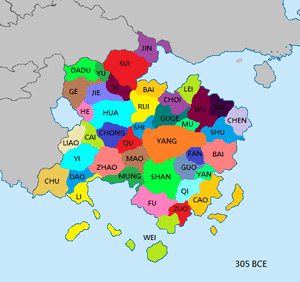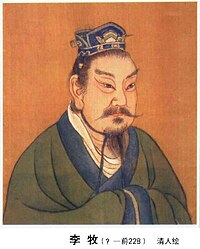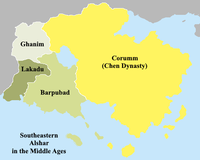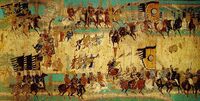Daxia
Corumm, officially the Democratic Republic of Corumm is a state located in southern Alshar. It borders Jalqolak to the west, Kulaparkar to the north and the Taizi Sea to the east and south. Its capital and largest city is Mirzak. Corumm possesses a strong and highly industrialized economy and extensive investments across Alshar.
| Democratic Republic of Corumm 昆仑 共和国 (Corummese) | |
 | |
| Motto: The sun never sets on Corumm | |
| Anthem: "March of Joy" | |
| Capital | Mirzak |
|---|---|
| Official languages | Corummese |
| Demonym(s) | Corummese |
| Government | Republic |
| • Chancellor | Prib Dodd |
| Establishment | |
| • Era of Chaos Period | ¿?-423 |
| • Supremacy of Cao | 423-645 |
| • Heavenly Empire | 645-1941 |
| • Federal Republic of Corumia | 1941-1992 |
| • Republic of Corumm | 1992-present |
| Population | |
| • 2030 estimate | 698,168,695 |
| GDP (nominal) | 2030 estimate |
| • Total | L$166,743,046,936,166.41 |
| • Per capita | L$30,472.05 |
| Currency | Corummese Lira (ç) |
Corumm is a highly centralized state, although one deeply committed to democratic practices and the rule of law. Historically, relations with its neighbors have been plagued by conflict and mistrust but this is changing in recent times. The people of Corumm are highly suspicious of foreigners and their barbaric customs and hold fast to several xenophobic attitudes. The modern Corummese state is considered to begin with the ascension of Linge Chen and his Party of Corummese Democrats to power in 1992.
History
Era of Chaos Period

During this era several states vied for supremacy over one another. The strongest states were Cao, Mung, Zuo, Chen, Yang, Liao and Jin(later divided into Upper and Lower Jin). Other states existed during the period but were much shorter lived.

The balance of power often changed as temporal alliances were forged or broken. The appointment in 105 BCE of Prince Dorgon as chief minister of Yang and his military reforms mark the start of the 'Era of Yang Domination'. For most of this period Yang maintained a military alliance with the southern state of Cao, which enabled it to overtake Zuo by 12 BCE. Wars with Chen would last until its final destruction over 200 years later, with Yang reaching its greatest extent by 235 CE.
Despite its expansion, Yang could never comprehensively defeat its other neighbors and was riven by dynastic infighting that would fatally weaken it and give openings to rival states. As Yang became increasingly embroiled in wars on all sides, Cao eventually broke off its long standing alliance. During 368 CE, King Shisheng of Cao launched attacks on both Yang and Mung. Shisheng's successor, King Guofang, broke Mung's power and forced it into vassalage and pushed further into Yang, taking its capital and forcing the court to flee north. The loss of Dagu and the treasury provoked a palace coup against King Wen who was dethroned and executed by drowning. His 9 year old nephew was installed as King Wu of Yang and he ruled until the state's final destruction in 430 CE.
Supremacy of Cao Period
The progressive dismemberment of the Yang state allowed Cao to take its place as the new hegemonic power, now supported by Mung as a vassal state until 487 CE when its remaining independence was abolished. Several expeditions against Liao were undertaken but achieved limited gain due to the difficult mountainous terrain that favored the defender. The disastrous battle of Yanxi Pass where a 50,000 strong force was ambushed and destroyed put an end to Cao's military advances for the next 50 years, although it continued to claim overlordship over Liao. During this relatively peaceful period, the foundations of the imperial state were laid down. The highly bureaucratized system of governance, attempts at standardization of coinage and language and the expansion of a road system were products of this era.
By 552 the state of Upper Jin was attacked and reduced to a northern sliver of land, allowing Cao's forces a new avenue of invasion that avoided Liao's eastern mountain range. General Jian Xin amassed a force of 600,000 men and invaded from the north, sweeping aside the outnumbered armies of Liao in two bloody engagements. He marched all the way to the capital in Gimying and stormed it after a brief siege. King Wei of Liao was deposed by Jian Xin in favor of the king's 7 year old nephew and Liao deprived of most of its territory and its treasury carried away in wagons to Cao's court. Both Liao and the Jin remnant would continue to exist in a diminished state until 641 and 643 respectively.
Imperial Period
Cao Kun, First Emperor of Shang.
By the year 639, the State of Cao had either absorbed all the other kingdoms or relegated them to the status of vassals. Such was the case of Liao which had once encompassed all the western areas but was now reduced to a tenuous hold of Gimying and its environs. In the spring of 641, King Cao Kun accused Lord Shifeng of Liao of plotting to rise in rebellion. Lord Shifeng was arrested and then boiled alive in the square of Gimying, his wives and children were forced to take poison and all their servants castrated. Two years later pro Cao courtiers staged a palace coup and deposed Lord Ziao of Jin, inviting Cao Kun to rule. With the royal lines of Liao and Jin thus extinguished and its lands under control, Cao Kun could claim absolute supremacy.
In the year 645, Cao Kun renames his dynasty to Shang and declares himself First Emperor of a unified Corumm, a 'Heavenly Empire' from now on.
Shang Dynasty
The Shang dynasty was the ruling dynasty of Corumm for 211 years (645–856) after the formal end of the Seven Kingdoms period. The Shang dynasty was by and large an era of progress and stability in the first half of the dynasty's rule, until the Cai Rong Rebellion and the decay of central power in the latter half of the dynasty. The first Shang emperors became revered examples to be emulated by their successors and the dynasty set the foundations for the growth of the Corummese state for centuries afterwards.
Administrative reforms
The Shang built upon administrative and government reforms first implemented in Cao. The first Corummese legal code was produced by Shang, containing 2000 articles that covered everything from criminal punishments to the exact measurements of facial hair worn by government bureaucrats. The Shang implemented a system of four ministries that handled the military, finances, justice and administration, all overseen by a grand secretariat that reported to the Emperor. The capital was moved to the centrally located city of Dagu, later known as Mirzak in the post-imperial period. The Shang emperors introduced the practice of employing eunuchs alongside scholars for government administration, as their loyalty to the imperial figure was perceived to be beyond question, a costly mistake for later emperors.
Northward Expansion
Following nomad attacks on the northern commanderies in 676, the First Emperor dispatched the eunuch Ma Fuyeng to establish a fort on the northern approaches of the Hexi Corridor to deter further attack. This strategic fortress was dubbed Yang Daopian and from there Ma Fuyeng exerted a tenuous hold on the southern marshes of Xingkai and check the power of the nomad Degei confederation. In 679 the Degei raided and subsequently destroyed the settlements that had started to form around Yang Daopian. Lacking the means to properly breach the fortress, the Degei settled in their tents to wait for hunger to overcome the defenders. On hearing news of the siege, the Emperor raised a 60,000-man army and rushed to the Hexi Corridor. Degei scouts mistakenly assumed the vanguard of the imperial army to be the whole force that was sent against them, causing them to confidently enter the mountainous corridor. By the time they realized the actual size of the enemy force, retreat was no longer an option. Seeing the bulk of the besieging force leaving, Ma Fuyeng's forces rushed out the gates and stormed the nomad camp, overrunning the few defenders left. Trapped in the narrow pass between two forces, the Degei desperately fought to break out but were decisively defeated. The Emperor forced the Degei chiefs to prostrate themselves before him and imposed upon them the humiliating Treaty of Daopian. The treaty stipulated the Degei would become tributaries of Shang, they would migrate beyond the Urus river and settle there, leaving southern Xingkai for Shang colonization and they would provide 8,000 cavalrymen to serve in Shang armies.
Cao Zhi, Second Emperor of Shang.
Downfall
The Shang dynasty began to experience accelerated institutional and moral decay during the early 800's after the death of the Ninth Emperor, Cao Zang, widely considered to have been the last effective Shang emperor. His successor was his son Cao Meng, a slothful and heavy drinker uninterested in the responsibilities of state. This left the government in the hands of eunuchs and other court favorites who engaged in vicious factional struggles that disrupted the governance of the realm. A second factor was that Cao Zang willed considerable estates to his younger sons, which over time would give their branches of the family the wealth and clout to match that of the imperial court. Matters came to a head in 830 when Cao Meng's son, Cao Fulin, attempted to force the cadet branches of the imperial family to relinquish half of their income back to the central government. The refusal of Princes Zhang and Chu, the emperor's cousins, sparked the military conflict known as the 'Thrice Cursed War' that devastated the country for the last 28 years of the dynasty. Cao Fulin's successors would prosecute the conflict with increasing zeal and brutality.
In the winter of 854 relations between the cadet branches opposing the central government broke down and descended into infighting. The Fifteenth emperor Cao Leng immediately sought to take advantage and ordered his general Cai Rong to attack them. Cai Ron objected that an attack during the harsh winter was ill advised as supplies were low and attacking the cadet branches at such a juncture would force them to quickly make peace between themselves. The emperor's advisers accused Cai Rong of cowardice and treason and Cao Leng ordered his arrest. Cai Rong managed to slip away from Dagu on horseback and go to his army on the outskirts. There he denounced the emperor as an unjust and bloodthirsty tyrant and his troops rose in rebellion with him. Cai Rong's army then marched back to Dagu and laid siege to the imperial capital for two years. Eunuchs sneaked out of the city with gold to raise a relief army instead absconded with the money. In 856 Emperor Cao Leng was arrested by his own captain of the guard and handed to Cai Rong, who ordered him tossed into a cauldron of boiling oil. With the death of the last of the Shang emperors, Cai Rong claimed the Mandate of Heaven and declared himself Emperor Cai of the Chen dynasty.
Chen Dynasty
The period after the fall of the main Shang dynasty was one of continued turbulence and civil strife. The northern Degei confederation reneged on their status as a tributary state and once more threatened to attack the northern borders. On the west, Shang remnants coalesced into a 'Western Shang' and propped a minor as Emperor Cao Fu. Seeing the Western Shang as a dire dynastic challenge that needed to be quickly crushed, Cai Rong chose to send off one of his daughters as bride to the Degei Khan along with a dowry of 50,000 pounds of silver as dowry to seal an alliance. With the north secured from attack and a sizable nomad force marching with his army, he turned west. General Bi Liao of the Western Shang put up stiff resistance but ultimately was forced to take his emperor and retreat west into Jalqolaki territory. Emperor Cai contented himself at first with reimposing his rule on the recovered territory, but Bi Liao's constant raiding and ambuscades finally convinced him of the necessity of further pursuit.
Chen-Jalqolak Wars

The territory of modern Jalqolak was divided in three kingdoms at the time, Ghanim being the closest to Corumm. Chen general Qu Hou advanced into Ghanim's territory at the head of a 40,000 army and 6000 Degei cavalry, pursuing an estimated 20,000 Shang loyalists under Bi Liao. Too outnumbered to stand his ground, Bi Liao sought to evade battle at every turn and sent messengers to the local ruler asking for support. Bi Liao's messengers painted Qu Hou's incursion as an invasion aimed at Ghanim rather than a punitive expedition solely aimed at the Shang remnants. Seeing the sizable Chen army continue to make its way westward, Farukh agreed to join forces with the Shang to oppose it. Farukh mustered 13,000 men, consisting mostly of lightly armored footmen with the exception of the kings own 1500 strong bodyguard armed in heavy mail. He also brought forth twenty war elephants. The joint Ghanim-Shang force moved to intercept Qu Hou's army and the two forces came into contact at the Battle of Horoz Plain.

Altough numerically inferior, Bi Liao decided to give battle due to the fact the Degei cavalry appeared to have deserted Qu Hou and he expected his elephant squadron and the king's heavy cavalry to give him the decisive edge. Unbeknown to him the Degei had separated on purpose from the main army shortly after entering Ghanim and shadowed them at a distance, and were now rushing to approach his army from the rear. At the onset of the battle Farukh's elephants were sent charging against Qu Hou's center, nearly buckling it until concentrated volleys of fire arrows and rudimentary rockets caused the elephants to panic and turn back just as Bi Liao's infantry was charging, crashing into them and throwing their lines into a panic. Liao now tried frantically to rally his panicking men to face the Corummese charge while Farukh led his elite bodyguard forwards to buy the main force time to reorganize. As Liao's men slowly managed to bring the elephants down while losing ground to Hou's advance, the Degei nomad cavalry arrived at the battle, releasing several volleys that killed and wounded hundreds of men before charging into the rear of Bi Liao. This charge broke the morale of the joint army and sent it into panicked fleeing. Bi Liao was killed by Degei horsemen while trying to escape and his severed head was presented to Qu Hou, while King Farukh was captured and forced to prostrate before Qu Hou. In the aftermath of the battle King Farukh was forced into becoming a tributary of the Chen dynasty, handing over both the infant Shang pretender, one of his own sons as a hostage and the fertile plains around Lake Doyeon to the Chen.
Zhong Dynasty
Qian Dynasty
Republican Period
One Party Period
Invasions of Crona
Geography
Climate and Environment
Corumm experiences a combination of continental climate and an oceanic climate, but most of the country experiences a humid continental climate within the Köppen climate classification scheme. Winters bring clear weather interspersed with snow storms as a result of northern and northwestern winds. Summer tends to be by far the hottest, most humid, and rainiest time of year because of the southern and southeastern monsoon winds that carry moist air from the Omnium Sea. Approximately 60 percent of all precipitation occurs from June to September. Spring and autumn are transitional seasons between summer and winter. The daily average high and low temperatures for Mirzak are −3 and −13 °C in January and 29 and 20 °C in August.
Lake Doyeon in western Corumm.
Wildlife
Administrative Divisions
Government/Politics
Government Structure
According to the Constitution of Corumm, the country is a federal republic, wherein the Chancellor is both head of state and head of government. The Republic of Corumm is fundamentally structured as a multi-party representative democracy, with the federal government composed of three branches:
- Executive: The Chancellor is the Supreme Commander-in-Chief of the Armed Forces, can veto legislative bills before they become law, and appoints the cabinet and other officers, who administer and enforce federal laws and policies.
- Legislative: The unicameral Assembly of the People, made up of the 500-members, adopts federal law, declares war and approves treaties. The Party of Corummese Democrats has maintained an absolute majority since 1992.
- Judiciary: The Supreme Court and lower federal courts, whose judges interpret laws and can overturn laws they deem unconstitutional.
The Chancellor is elected by popular vote for a six-year term. There are no term limits in place.
Society
Mass Surveillance
Corummese society is constantly watched for signs of political dissent or more mundane antisocial behavior that could be interpreted as 'Anti-Corummese'. A wide variety of methods are used to keep an eye out for the unruly. While the security services have traditionally favored the use of informants(rumored to amount to 2% of the population), in recent years there have been greater efforts to expand the monitoring of all online activity by enlisting the aid of telephone and cellphone companies, internet providers and media conglomerates. There is also a long running program to install surveillance cameras in all public places, with the stated aim to have 100% coverage of all major cities by 2040 and eventually create the largest CCTV network in the world. All smartphones available to the public come with a pre-installed application that monitors the users activity. The mass surveillance apparatus is under direct control of the Bureau of Political Orthodoxy(BPO) with local security agencies providing support when necessary.
Citizen's Loyalty System
The BPO has begun a pilot program to punish or reward citizens based on any number of variables such as perceived loyalty to the Party, online activity, travel to foreign countries, military service among others. Citizens with higher scores have preferential access to government jobs, loans from state banks, priority for university spots while low scores can result in restricted travel or the imposition of personal curfews. While the program is still in its infancy, the desired endgoal is for it to regulate every aspect of the citizen's life from birth to death. Corummese citizens living abroad are not exempt from this system of control.
Reeducation Centers
The government runs an undisclosed number of reeducation facilities where it houses antisocial individuals and seeks to reform and reprogram them into useful members of society. Likened by opponents to gulag networks that exist under the communist model, the use of torture, brainwashing and mandatory origami lessons are allegedly widespread.
Economy
Formal Economy
Gambling
Parallel Economy
Human Trade
Drug and Weapon Trafficking
Counterfeit goods
Organ Harvesting
Foreign Relations
Adversaries
- Xingkai'Pei
- Jalqolak
- Kulaparkar
Potential Adversaries
- Pukhtunkwa
- Burgundie
- Orenstia
- Valcenia
Non-Threatening
- Alstin
- Pelaxia
- Kiravia
- Takata Loa
- Bussdaberria
- Hendalarsk
- Yonderre